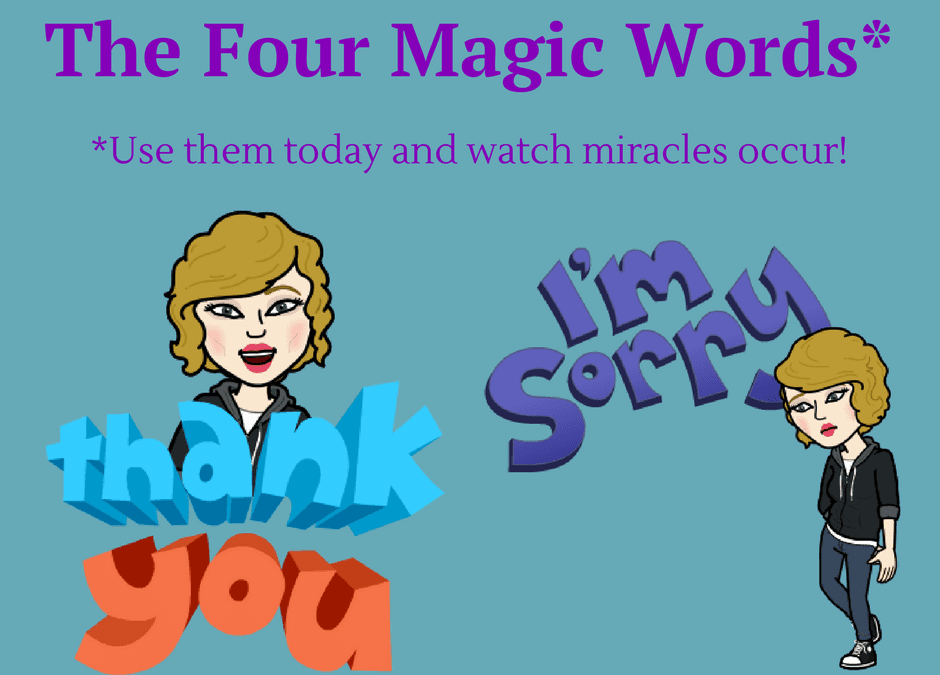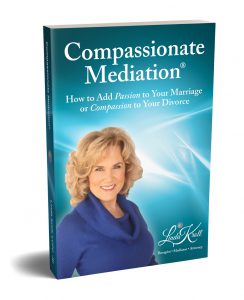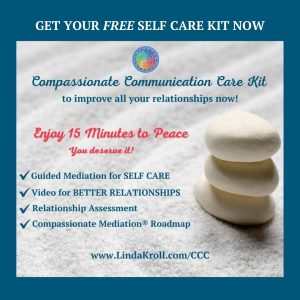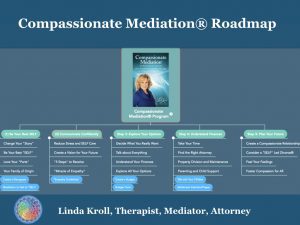The Four Magic Words
Would you like to heal a relationship? Do you wish you could “start over” when there has been an estrangement? Do you seek hope when things seem hopeless? Or would you like to make a good relationship even better?
You have four magic words at your disposal. And you only need to use them two at a time: “Thank you” and “I’m sorry.”
Try them today and see what happens. You may think you’ve said them, and maybe you have — and maybe not. Or perhaps not enough.
You are probably hoping someone will say them to you first. You have every right to feel that way. However, by keeping score of who says it first or more often, the estrangement continues.
Take a deep breath. Yes. Really. Right now. Just breathe. And once more. And if you’re willing, close your eyes and go inside and see if there is an unspoken “thank you” or “I’m sorry” that you could share with someone you know.
The Magic of “Thank You.”
Who can you thank today? Your partner, your parents, your children, a friend, a coworker, a friend?
You can even thank yourself for all you have accomplished and who you are — instead of any constant internal criticism, comparisons or perfectionism.
How do you think your mother or father would feel to get a call from you to say, “I want to thank you for all you have done for me.” You may think you’ve told them. You probably bought a card on Mother’s Day or Father’s Day, sometime in the past.
But just call them out of the blue and give them the gift of your unsolicited and unscheduled appreciation. No matter what mistakes they may have made (and we all make them), they did the best they knew how — according to all they learned along their way. So take a moment to say “thank you.” Let them know you care.
How would you feel if your children said it to you?
Or “Thank you (to your child), for being who you are.” You can add, “I might not always agree with your choices, but I thank you for being a good person/for your loving heart/ for being such a loving sister/brother.”
So many boys and girls – of all ages, even as adults, are seeking their parents’ approval. Congratulating your children for their accomplishments is good, but it sometimes ties your approval with their performance.
Just thank them for who they are, not just what they do, and watch their self-esteem expand.
Imagine how your partner would react for a heartfelt “thank you” for just about anything. Try it and see.
- Thank you for all the love you give to me and our family.
- Thank you for all you contribute to our home, health and happiness.
- Thank you for understanding me all these years.
- Thank you for your kindness/patience/good humor/affection.
The list goes on, and so does the opportunity for more connection and intimacy. You can never be too grateful, and their gratitude will flow back to you for your generosity of heart and spirit.
Thanking a friend can add so much value to their life and your friendship. Sometimes we take for granted all that our friends do for us, or we thank them at the time for a gift, lunch, or gesture. But go one step beyond. Take a moment to reach out, even years later, to thank them for their constant support and encouragement, their presence in your life, or all that they mean to you.
If there is someone who touched your life years ago, and you’ve lost contact, then find them on social media (Facebook, Linkedin) and reach out with a “thanks.”
Maybe they will pay if forward – either back to you or someone else, and you can start a chain of gratitude that can help encircle the world with love!
Say thank you at work, and make someone’s day. If you are the employer, you know that your words can often be a morale boost. If you’re a co-worker, you feel seen and appreciated by a peer. And if you’re an employee and you don’t have access directly to your superior, then thank them with an attitude change that appreciates the best of what they intend, instead of harboring negative thoughts or resentments about what they sometimes do.
No matter where, when or how, a heartfelt “thank you” is always a gift.
The Miracle of “I’m Sorry.”
It’s never too late. Really, it’s not.
Often, we push things under the rug rather than talk about them. Time goes by, and we assume that the other person has moved on, and that bringing up a topic will open an old wound. However, more often than not, that wound is still there, and the balm of your words it what is needed for true healing.
Your parents.
Just as our parents made mistakes, so did we as children. And as adults. Probably the way we talk to our parents or lose our patience is a habit that we don’t even notice. Sometimes the older they get, the more our patience is tried as their caregivers. Say you’re sorry.
You might do it again (lose your patience, have a tone, avoid contact), but you can take a moment and acknowledge that you could have done it better, and you can be better from now on.
You never know how long we have with them. Don’t leave any words unspoken.
Your Children
Don’t be afraid to apologize. It doesn’t mean that you are a bad parent. It doesn’t mean that you lose status.
It means you have the courage to acknowledge your mistakes, and you model for them how to do the same.
You mean well. You do what you do for their sake. You worry about them and set boundaries for them, and care very much. And you may sometimes yell, or criticize, or berate, or become intolerant, judgmental or demeaning.
You may be right in what you are saying but not in how you are saying it.
Your tone has even more impact than your words, and you can say you’re sorry for the way you expressed yourself. You don’t need to justify your actions. In fact, when you try to explain your motivation or reasoning, it takes the focus off your apology and sounds like a justification.
Just say you’re sorry, and let them know you empathize with how you made them feel (sad, scared, hurt), and you don’t want to do that to them.
Believe me, it’s never too late.
Your Partner — and even your EX partner!
“I’m sorry” is like a magic elixir. Marriages can be save, revived, and healed – even after they’ve ended.
You know that there are things you have done which have hurt or scared your partner. It’s good to stop doing those things – yelling, withholding, or a myriad other ways you’ve coped with your feelings.
You can offer the Miracle of Empathy. You can let them know that you realize how they must have felt, understand how your actions impacted them, and that you’re sorry.
And if you do the same thing again, be sorry again. Not rotely, but with true empathy at their experience of being on the receiving end of disrespect.
If you think it’s too late to say “I’m sorry,” to your former spouse, you are totally wrong.
Too many marriages end with silent regrets, unacknowledged gratitude, and unspoken apologies. The wounds can stop festering over time, but many of them never truly heal. Your willingness to acknowledge your mistakes with an open-hearted “I’m sorry,” can heal your re-structured families for the benefit of all concerned.
Instead of needing to keep your walls up when you are in close proximity (family events, graduations, weddings, holidays), you are free to “start over,” as two people who once loved each other enough to promise to stay together forever, but who now can co-exist with mutual courtesy and civility.
The magic of “I’m sorry,” is at it’s best no matter when you share it. You don’t even have to go into detail about why you’re sorry or what you did.
Just offer those two words. Your “ex” will get it. And no matter what their initial response (gratitude, indifference, anger), you’ll know you did your part to offer your amends with the restorative power of empathy.
“I’m sorry” to a friend.
No matter how far back in time, those words now still help. No one of us is perfect. We all make mistakes. Some are inadvertent, and some were an outcome of our immaturity or selfishness in the past.
If there is something you did (or didn’t do) that affected someone’s life or day, and you know what it is and have felt bad about it, then reach out and apologize. Send them a message on Facebook, no matter how “random” it feels.
Just say, “I’m sorry for (whatever you did or didn’t do) and I wanted you to know. I hope your life is going well. All my best, (your name.)”
I have a friend who got her apology from a classmate at their 50th reunion, and she was relieved it finally came. A half-century later.
“I’m sorry,” in your workplace.
With the hierarchy in some businesses, there may be a lot of mumbling or grumbling covertly with feelings that have been ignored or hurt.
Just as with all the other relationships mentioned already, you can find a time or a way to convey your amends.
If it feels like it may be awkward you can change the energy with which you relate to that person. Don’t avoid them. Reach out. Start over.
But those two words, “I’m sorry,” will let you truly re-boot the connection into one of more trust and respect.
You can heal your relationships, “start over” when there has been an estrangement, bring back hope for a better future, and make your good relationships even better.
One phone call. One text. One message. One moment. Change the dynamics of your relationships today, with those four Magic Words – two at a time, or all four together: Thank You. I’m Sorry.
The Hawaiian practice of Ho’oponopono
Some religious practices have a Day of Atonement where we ask others to forgive us for anything we may have done to hurt or offend them. While this is always a good practice, it is only once a year. We can say “I’m sorry” anytime, and also offer gratitude and love.
The Hawaiian practice of Ho’oponopono is four simple steps. You repeat:
- I’m sorry.
- Please forgive me.
- Thank you.
- I love you.
I’ve got my list of people to contact. Do you have yours?
Now, say it to yourself – I’m sorry, please forgive me, thank you ,and I love you —
and have a wonderful day!
You can Create the Relationship
You Desire and Deserve!
No two relationships are alike.
If you take a moment to tell me about yours,
I can offer you solutions to help you make the changes you need now.
Your FREE RELATIONSHIP ASSESSMENT will be sent to you,
along with an invitation to my next LIVE Webinar.
If you’d like to learn more about how to share the healing power of gratitude and empathy, please get your FREE chapter of my book, Compassionate Mediation®: How to Add Passion to Your Marriage or Compassionate to Your Divorce.
You will learn Compassionately Communication to heal and transform all your relationships, starting with the one you have with yourself!



